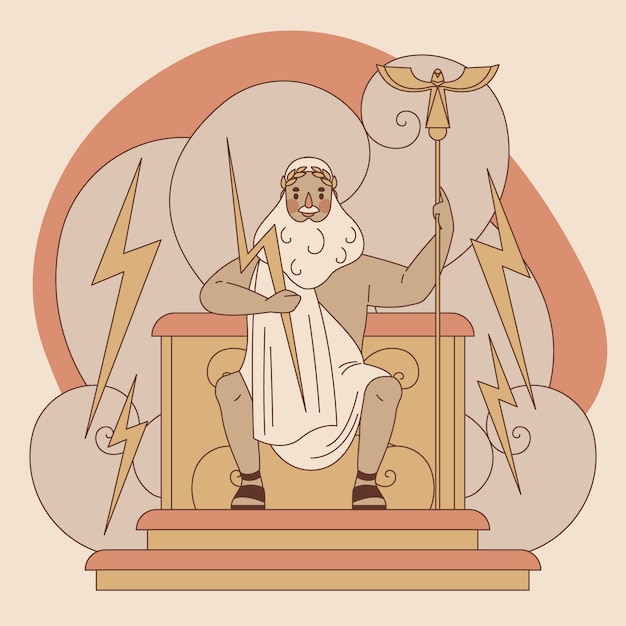Greek Mythology Facts – Unveiling the Legends and Tales of Ancient Greece

In Greek mythology, Zeus was the king of the gods and ruled over Mount Olympus.
The Trojan War, which lasted for 10 years, was sparked by the abduction of Helen of Troy.
Poseidon, the god of the sea, was known for his fiery temper and his control over earthquakes.
Achilles, one of the greatest Greek heroes, was invulnerable except for his heel.
The goddess Aphrodite was born from the sea foam and was known for her beauty and love.
Hades, the god of the underworld, ruled over the souls of the dead.
The twelve Olympian gods, including Zeus, Athena, and Apollo, were considered the most powerful deities in Greek mythology.
Medusa, with her snake-like hair and ability to turn people into stone, was one of the most feared monsters in Greek mythology.
The story of Pandora’s box warns of the consequences of curiosity and the release of all evils into the world.
The hero Perseus slayed the fearsome Gorgon Medusa using a mirrored shield to avoid her petrifying gaze.
The mythical creature known as the Minotaur had the body of a man and the head of a bull.
Hermes, the messenger of the gods, was known for his speed and ability to travel between the realms.
The goddess Athena, daughter of Zeus, was the patron of wisdom, strategy, and crafts.
The tragic love story of Orpheus and Eurydice demonstrates the power of music and the consequences of losing faith.
The mysterious Sphinx posed a riddle to travelers, devouring those who failed to solve it.
Greek Mythology Facts – Unveiling the Legends and Tales of Ancient Greece part 2
The labors of Heracles, also known as Hercules, were set upon him as punishment for killing his wife and children in a fit of madness.
The goddess Demeter, associated with agriculture, was responsible for the changing of the seasons.
In Greek mythology, the Sirens sang beautiful songs to lure sailors to their doom on rocky shores.
The Furies, also known as the Erinyes, were mythical goddesses who avenged crimes and punished wrongdoers.
Dionysus, the god of wine and fertility, was known for his wild and ecstatic followers.
The beautiful nymph Echo was cursed by Hera to only be able to repeat the words of others, leading to her tragic love story with Narcissus.
The three-headed dog Cerberus guarded the entrance to the underworld, preventing the living from entering and the dead from escaping.
Mount Olympus, the highest mountain in Greece, was believed to be the home of the gods.
The love story between Cupid, the god of love, and Psyche, a mortal princess, teaches the power of true love and overcoming obstacles.
The myth of Prometheus tells the story of how he stole fire from the gods to give to humanity and suffered eternal punishment as a result.
The goddess Artemis, twin sister of Apollo, was the patron of the hunt, wild animals, and childbirth.
In Greek mythology, the sea nymph Calypso kept the hero Odysseus captive on her island for seven years.
The river Styx, which ran through the underworld, was believed to be the boundary between the world of the living and the realm of the dead.
The Titan Atlas was forced to bear the weight of the heavens on his shoulders as punishment for leading the Titans in a war against the gods.
The hero Theseus used a ball of string to find his way out of the labyrinth and defeat the Minotaur.
The goddess Hera was known for her jealousy and anger, particularly towards Zeus’ numerous affairs.
The nine muses, daughters of Zeus and Mnemosyne, were the goddesses of inspiration in art, music, and literature.
The myth of Icarus warns against the dangers of hubris, as he flew too close to the sun and his wings melted, causing him to fall to his death.
The Titan Prometheus was punished for his defiance of the gods by having his liver eaten by an eagle each day, only for it to regenerate overnight.
The goddess Nyx personified the night and was thought to bring darkness and sleep.
The hero Jason embarked on a quest with his group of Argonauts to retrieve the Golden Fleece from a distant land.
The mythical creature known as the Cyclops had a single eye in the middle of its forehead and was known for their strength and brutality.
The river Lethe, also known as the river of forgetfulness, caused the dead to lose their memories before crossing into the afterlife.
The goddess Hestia, sister of Zeus, was the protector of the home and hearth.
The Erinyes, also known as the Furies, were often depicted as vengeful women with snakes for hair and bloodshot eyes.
The tale of King Midas tells the story of his golden touch, which ultimately led to his isolation and sorrow.
The god Apollo, known as the god of light and music, was also associated with healing and prophecy.
The hero Perseus used the reflection on his shield as a mirror to avoid looking directly at Medusa and turning to stone.
The River Styx was believed to grant invulnerability to the gods and played a role in several myths, including the binding of Achilles’ heel.
The myth of Pandora’s box serves as a warning about the dangers of curiosity and the consequences of unleashing evil into the world.

